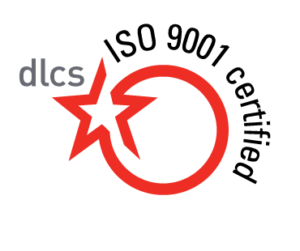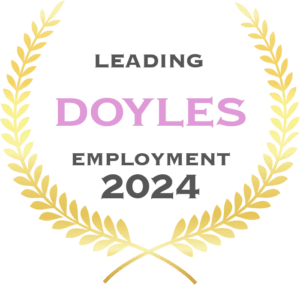
The recent election of a Federal Labor Government could see the unhindered implementation of the Australian Labor Party’s workplace relations reform agenda before the end of this year.
The most significant reforms are likely to measure consistent with Labor’s stated policy platform of promoting job security and reducing insecure work.
What do you need to know and what do you need to do to prepare for these changes? Here’s our take on it.
Annual Wage Review 2022
Before considering Labor’s policies, here’s a brief recap of the Fair Work Commission’s recent 15 June 2022 wage decision. Effective 1 July 2022:
- the National Minimum Wage will be $812.60 per week or $21.38 per hour, which amounts to a 5.2% or $40 increase; and
- modern award minimum wage rates will increase by 4.6%, subject to a minimum $40 increase for employees on award rates below $869.60 per week.
Action: Organisations need to prepare to implement wage increases for relevant employees from 1 July 2022, and must review annualised salary arrangements for award-covered employees to ensure compliance with minimum entitlements.
Measures to Promote Job Security and Reduce Insecure Work
Labor policy platform measures to achieve their stated objectives include:
Casuals definition
Labor wants to make significant changes in relation to casual employment to support their commitment to job security.
Action: Review your organisation’s labour mix model, especially where it is built around casual employment.
Labour hire
Labour wishes to embed the ‘same work same pay’ concept for labour-hire workers who do the same work as directly hired employees, along with establishing a national labour-hire licensing scheme.
Action: Make business plans in full awareness that the cost of labour-hire may change dramatically if labour-hire workers are currently paid less than directly hired employees.
Long-term rolling fixed-term contracts
Labor wants to impose an overall cap of two consecutive rolling fixed-term contracts over a total duration of 24 months, following which an employer is required to offer a permanent position (with some exceptions which have not yet been announced).
Action: Organisations will need to consider the circumstances in which they use fixed-term contracts. Once detailed proposed changes are announced the implications will be clearer. Watch this space for more details!
Portable leave scheme
Labor has promised to consult with state and territory governments, unions, and industry regarding the possible development of portable entitlement schemes allowing some employees in insecure work to accumulate annual leave, sick leave, and long service leave when they move between jobs within a single industry, which they would otherwise not accrue because of the project-based nature of their work.
Action: Watch this space for details!
Gig economy
It is expected that some minimum standards such as minimum pay rates will be introduced for people who work on platforms.
Action: Watch this space for details!

Other Proposed Measures
Employment Summit
Rumoured to be held by September 2022, the Employment Summit will be for employers and unions to collaborate on improving the security of work and ensuring enterprise bargaining operates effectively. Labor has also indicated its support for giving the Fair Work Commission broad powers to arbitrate disputes arising while enterprise bargaining and improving access to collective bargaining, potentially through multi-employer bargaining. Ultimately it may become easier for unions to compel organizations to bargain. However, the Better Off Overall Test (or ‘BOOT’) is here to stay.
The Minister for Workplace Relations, Tony Burke, has bargaining “red tape” in his sights and wants enterprise bargaining to get wages increasing as well as produce a productivity dividend.
It will be fascinating to see if the Employment Summit leads to a re-engineering of enterprise bargaining in Australia!
Action: If your organisation is currently negotiating an enterprise agreement, consider seeking to finalise it as a 4-year agreement prior to any legislative changes. Anticipate some very strong industry-based bargaining as part of the reforms, but it is too early to predict which industries will be impacted in this way.
Wage Theft
Labor intends to introduce a legislated definition of ‘wage theft. This will determine what is and is not wage theft and make it a criminal offence.
Action: Understanding which industrial relations obligations apply is even more important than ever before. It is critically important that organisations comply with all aspects of industrial agreements. If paying annualised salaries for employees covered by modern awards, seek advice since this is an area where a great many organisations have underpaid employees in recent times.
Gender Pay Equity – Respect at Work
The Labor Government will implement all outstanding recommendations from the Respect@Work Report, the most significant of which involves amending the Sex Discrimination Act 1984 (Cth) to introduce a duty on all employers to take positive steps which are “reasonable and proportionate measures to eliminate sex discrimination, sexual harassment, and victimisation, as far as possible”.
Action: Once implemented, organisations must consider this as a safety issue since there will be a positive duty similar to Work Health and Safety obligations. Organisations should invest in harassment and discrimination training to comply with this positive duty. Please let us know if you would like to discuss training options – we are a provider of an Appropriate Workplace Behavior training module tailored to suit employers and managers.
Superannuation
To be enshrined in the NES meaning workers will be able to pursue employers directly for unpaid superannuation.
If you would like to discuss the implications of any of these changes with one of our lawyers, please let us know. We’re here to help.











